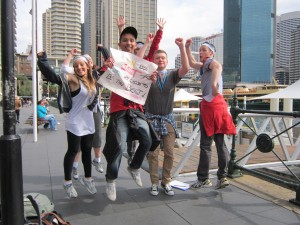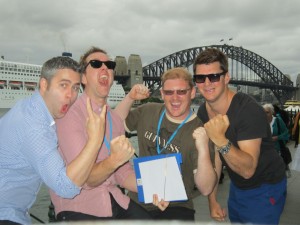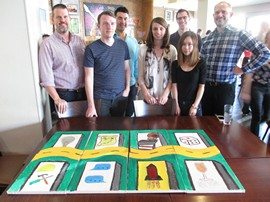So, you have a teambuilding activity in your diary and you want all that winning kudos to go your team’s way……but how? What makes for a winning team on a corporate team building exercise?

Team Bonding can offer great advice, as after every Amazing Race presentation we ask the winners a simple question, “why were you the winning team?” With 200 events in the past year or so, we have a large sample of answers to report on. The common answers broadly fall into following categories:
1. Speed – really pushed themselves to complete tasks at highest possible speed and maintained a fast pace between checkpoints. We’ve noticed that the most naturally competitive people have an inbuilt sense of urgency that propels them, and often others, through their tasks. Of course, speed alone cannot win an event as it takes a careful calibration of time versus effort to create quality outcomes, but it is definitely a major contributing factor to a winning result.
2. Strengths and talents – this is all about maximum utilisation of the team’s collective strengths and talents, understanding the brief or problem to solve and allocating the best resources to the tasks given. In this model the team member with a known strength or talent “steps up” to direct or coach others to a better performance on each task. Teams with people of diverse talents often perform well, especially if those people are supported by their teams.
3. Leadership – generally winning teams are organically or “self” led, but some teams openly acknowledge that one individual either inspired or drove the other team members to greater efforts. The rest of the team tacitly follow the energy and direction of this leader and achieve greater results than they otherwise would.
These are all key attributes, but by far the most common response is “Great Teamwork”, which is a “catch all” for a number of attributes.


4. Great teamwork is inclusive and democratic. It features true collaboration and organic leadership where those best suited to tasks are trusted and empowered to direct other team members to achieve positive outcomes. Great teamwork requires open communication and equivalent effort directed by team members towards a common goal. Great teams listen to what is required and instinctively understand how to direct the strengths of each individual towards the task. Great teamwork also requires momentum and balancing time and effort.
So there you are, a great formula for winning at team building, good luck with it. In truth the most important thing is to enjoy the process and have fun with your team mates.


